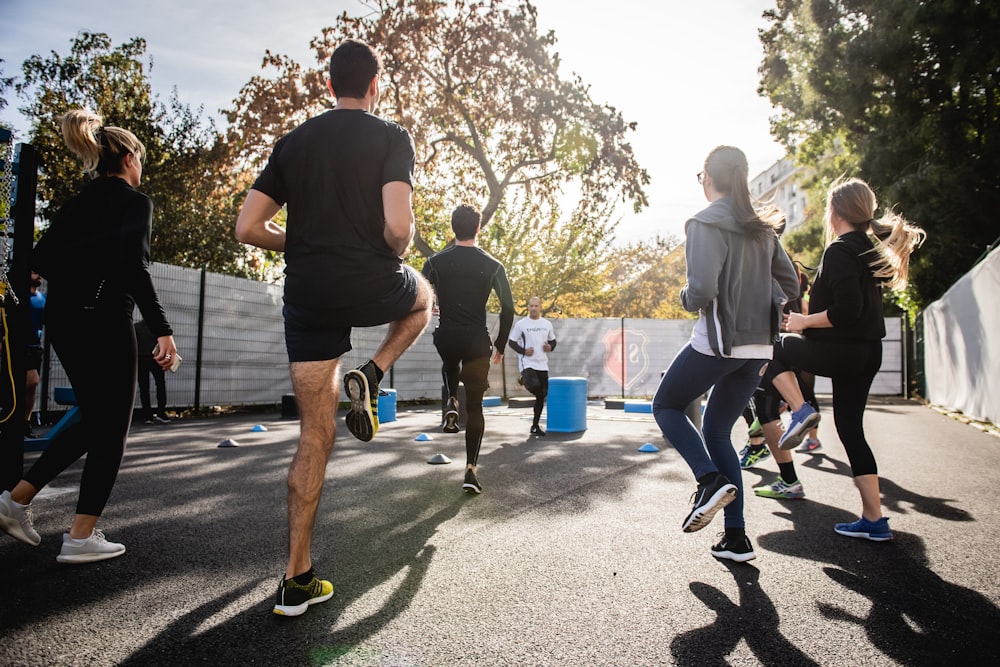Introduction
Welcome to the challenge of training through Ramadan! Fasting during this holy month can be a test of endurance, especially when it comes to maintaining your fitness regimen. But fear not, with the right strategies, you can optimize your workouts and stay on track towards your fitness goals. Let’s delve into some key tips for training effectively during Ramadan.
Understanding the Challenge
Training during Ramadan presents unique challenges due to changes in eating and sleeping patterns. With fasting from dawn to dusk, energy levels can fluctuate, making it crucial to adapt your workout routine accordingly. Understanding these challenges is the first step towards crafting a successful fitness regimen during this holy month.
Timing Your Workouts
One of the most important considerations when training through Ramadan is timing your workouts strategically. Many people prefer to exercise either before dawn or after breaking their fast in the evening. These times are ideal for maximizing energy levels and minimizing the risk of dehydration or fatigue. Experiment with different timings to find what works best for your body and schedule.
Hydration and Nutrition
Hydration and nutrition become even more critical during Ramadan, especially for those engaging in physical activity. It’s essential to hydrate adequately before and after your workouts, especially since you’ll be fasting during daylight hours. Focus on consuming nutrient-dense foods during your pre-dawn and post-dusk meals to replenish energy stores and support muscle recovery.
Adjusting Intensity and Volume
During Ramadan, it’s essential to listen to your body and adjust the intensity and volume of your workouts accordingly. You may find that you need to dial back the intensity or shorten the duration of your sessions to accommodate lower energy levels. Alternatively, you could focus on lighter, more recovery-focused exercises like yoga or stretching to maintain consistency without overexerting yourself.
Prioritizing Recovery
With shorter eating windows and disrupted sleep patterns, recovery becomes paramount during Ramadan. Make sure to prioritize adequate rest and recovery between workouts to prevent burnout and injury. Incorporate techniques like foam rolling, stretching, and meditation to promote relaxation and reduce stress levels.
Optimizing Meal Timing
Strategic meal timing can play a significant role in optimizing your fitness regimen during Ramadan. Aim to consume complex carbohydrates, lean proteins, and healthy fats during your pre-dawn meal to provide sustained energy throughout the day. After breaking your fast, focus on replenishing glycogen stores with a balanced meal containing carbohydrates, protein, and vegetables to support muscle recovery and growth.
Staying Consistent
Consistency is key when it comes to maintaining your fitness regimen during Ramadan. While it may be tempting to skip workouts or slack off due to fatigue, staying consistent with your training will help you maintain progress and stay on track towards your goals. Set realistic expectations for yourself and focus on doing what you can, even if it means adjusting your workouts to fit your energy levels.
Listening to Your Body
Above all, listen to your body and prioritize self-care during Ramadan. Pay attention to how you’re feeling physically and mentally, and don’t hesitate to make adjustments to your workout regimen as needed. If you’re feeling excessively fatigued or unwell, it’s okay to take a rest day or engage in lighter activities like walking or gentle stretching.
Conclusion
Training through Ramadan presents its challenges, but with the right strategies, you can optimize your fitness regimen and continue making progress towards your goals. By timing your workouts strategically, prioritizing hydration and nutrition, adjusting intensity and volume, prioritizing recovery, optimizing meal timing, staying consistent, and listening to your body, you can navigate this holy month while maintaining your fitness routine. Remember to approach training during Ramadan with patience, flexibility, and self-compassion, and you’ll emerge from the month feeling stronger, healthier, and more resilient. Read more about workout plan ramadan







